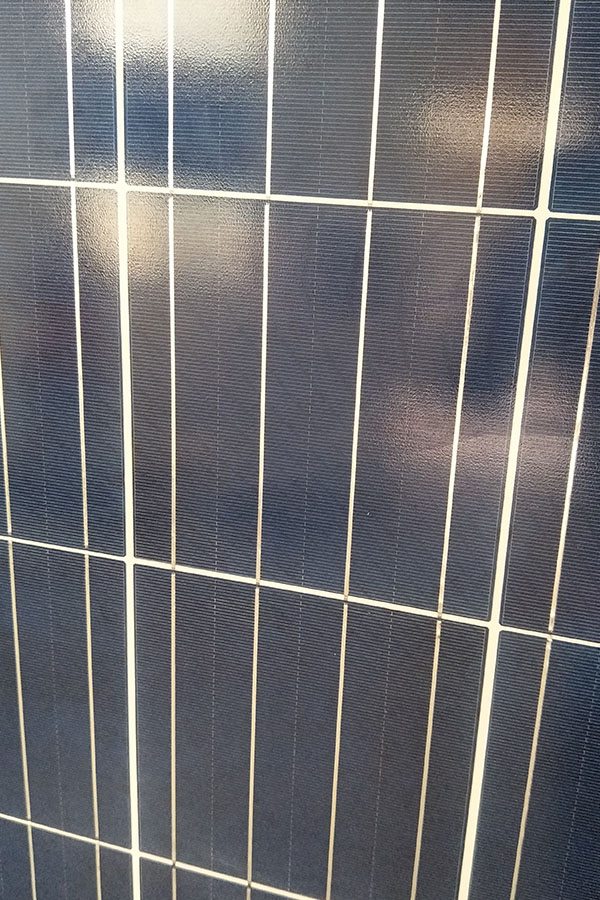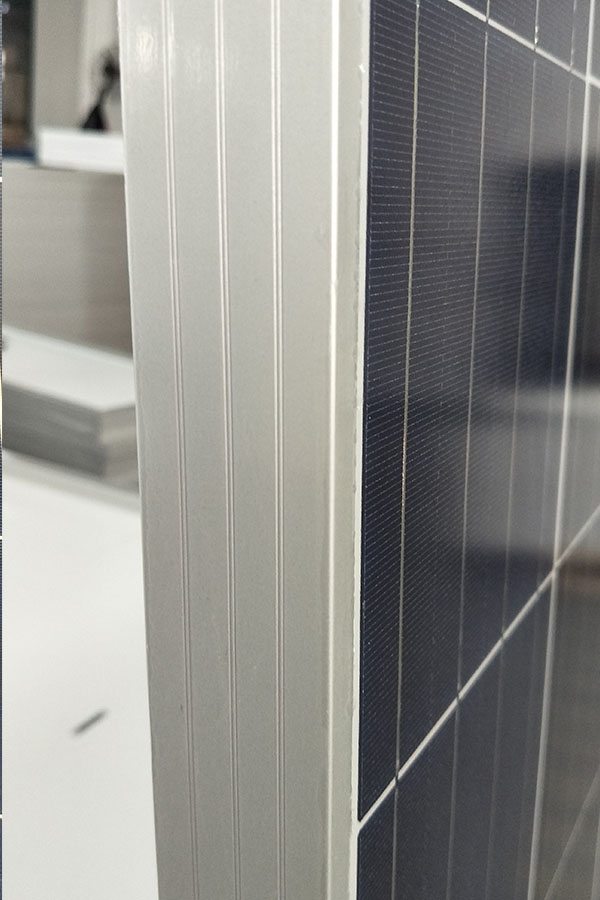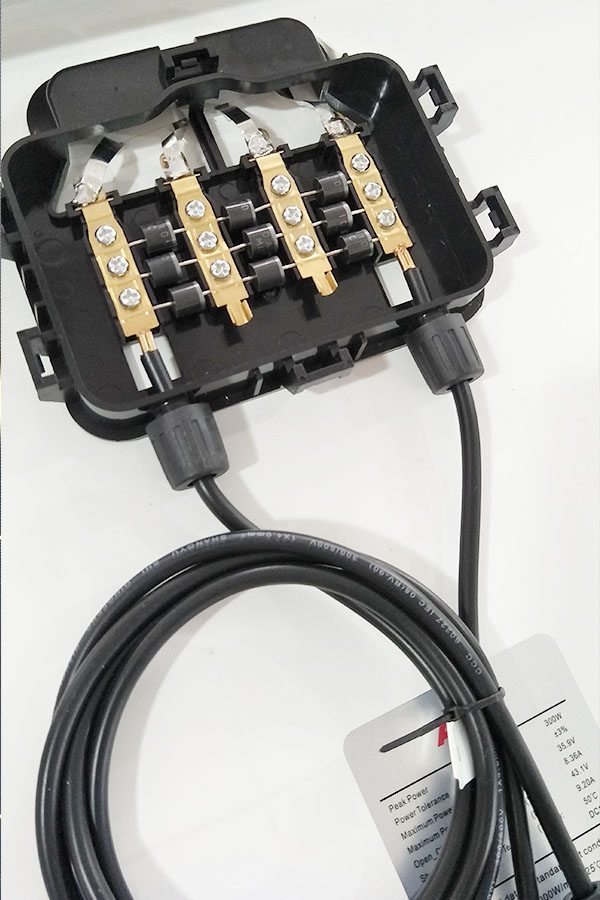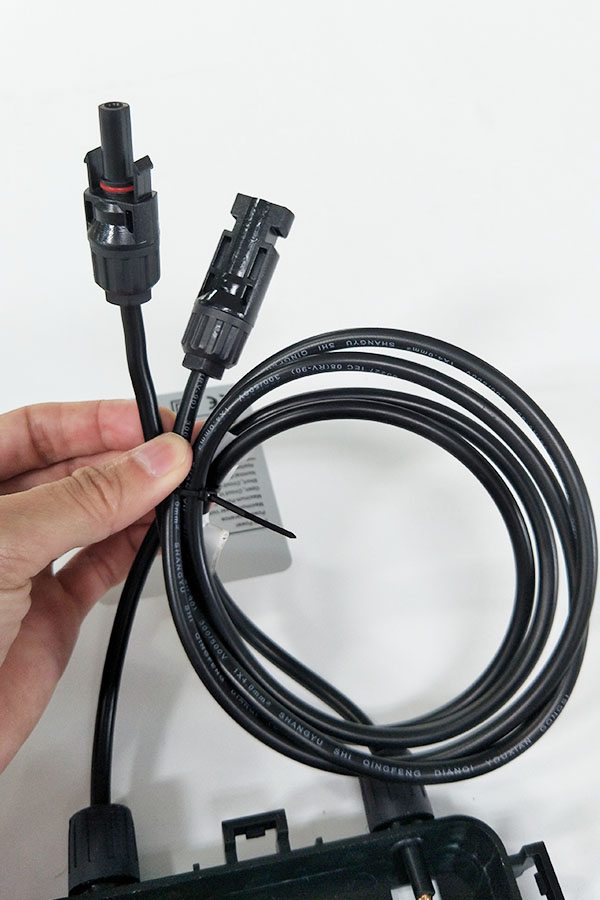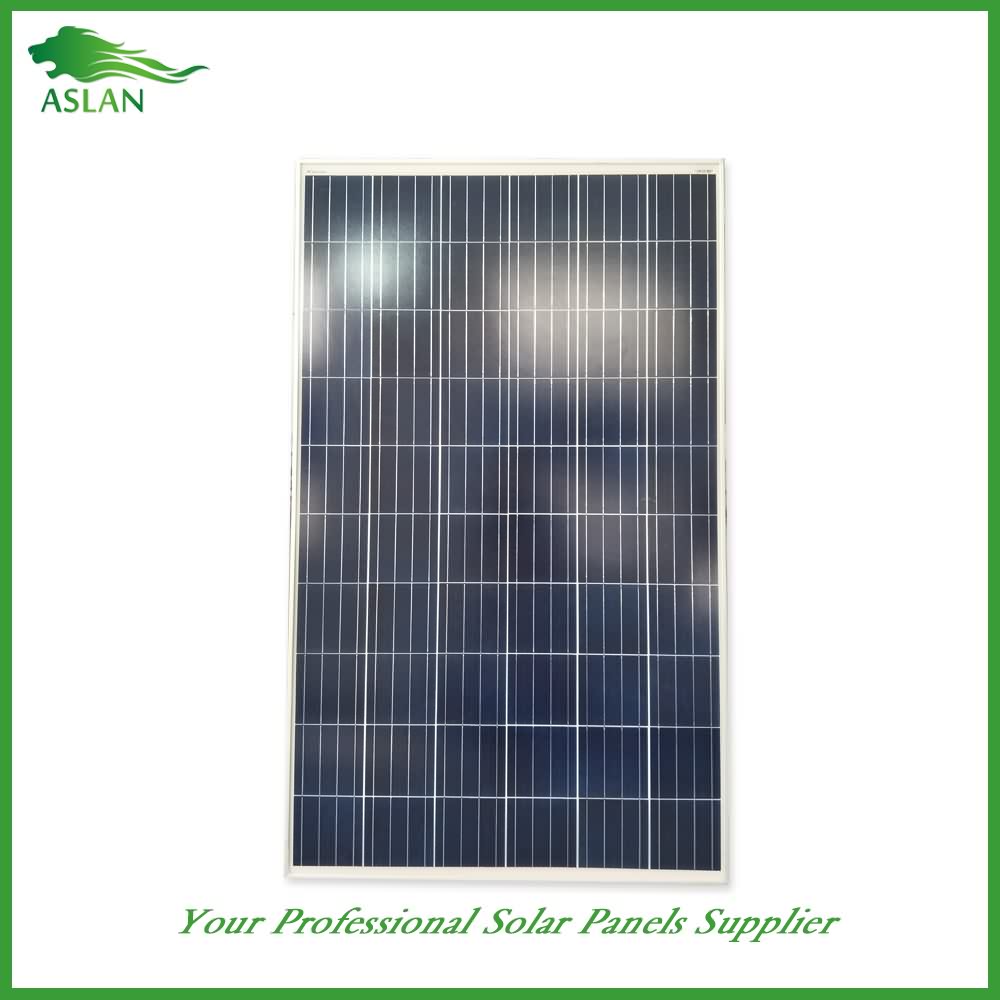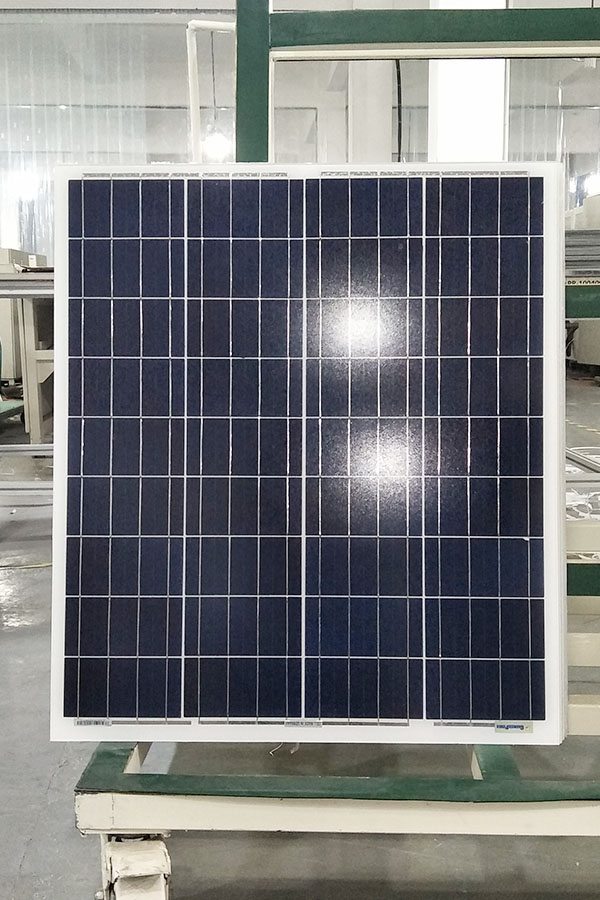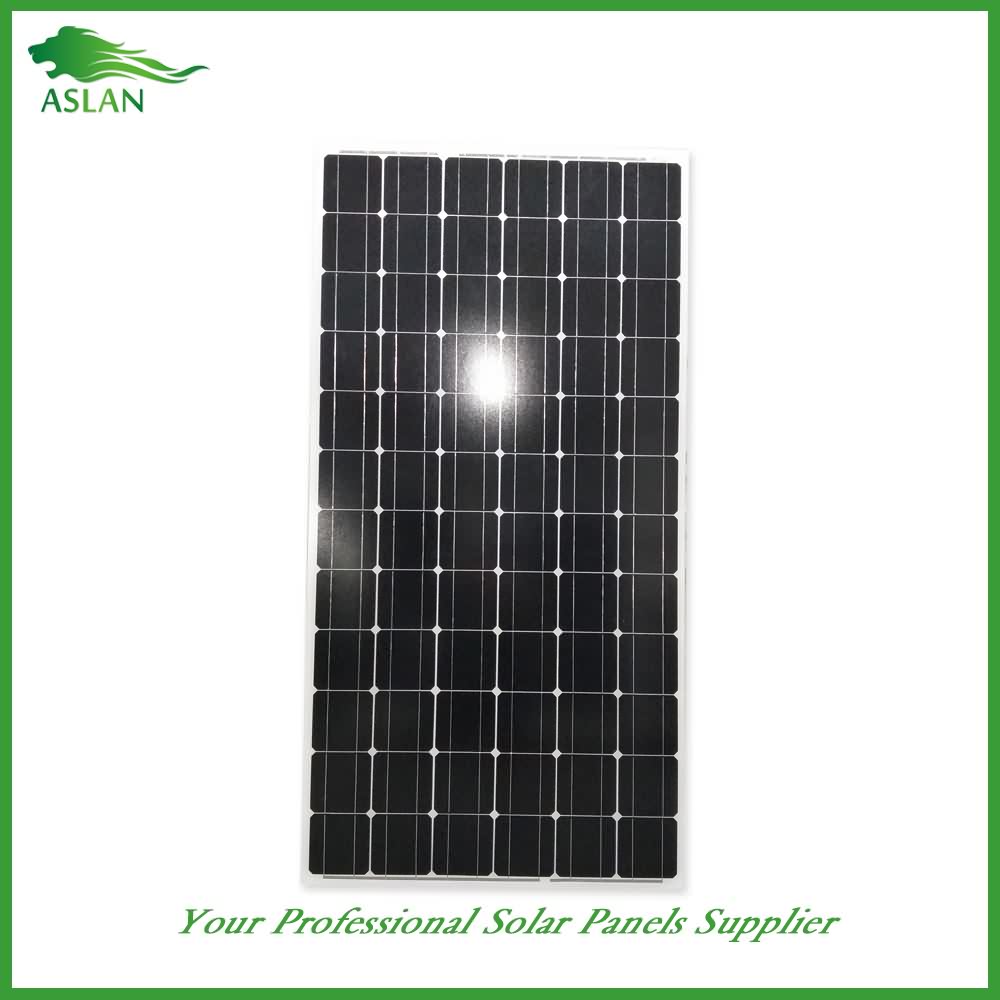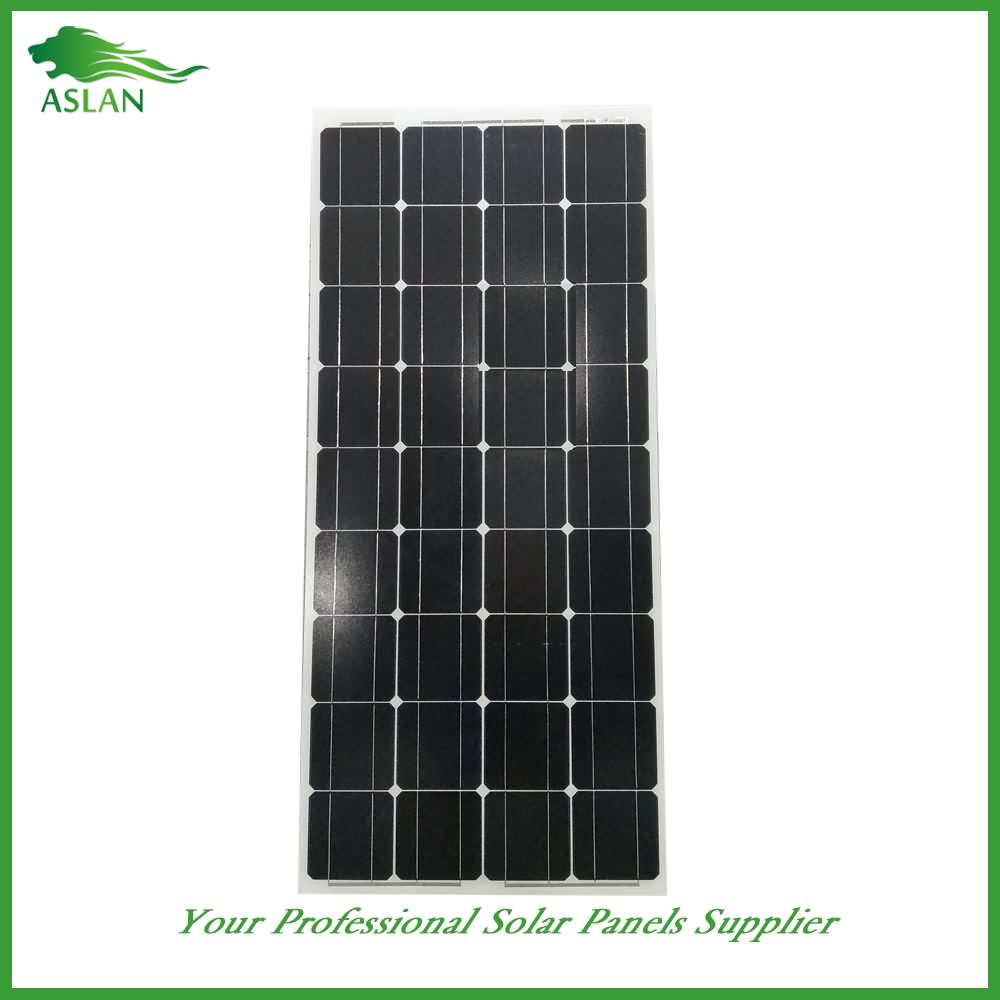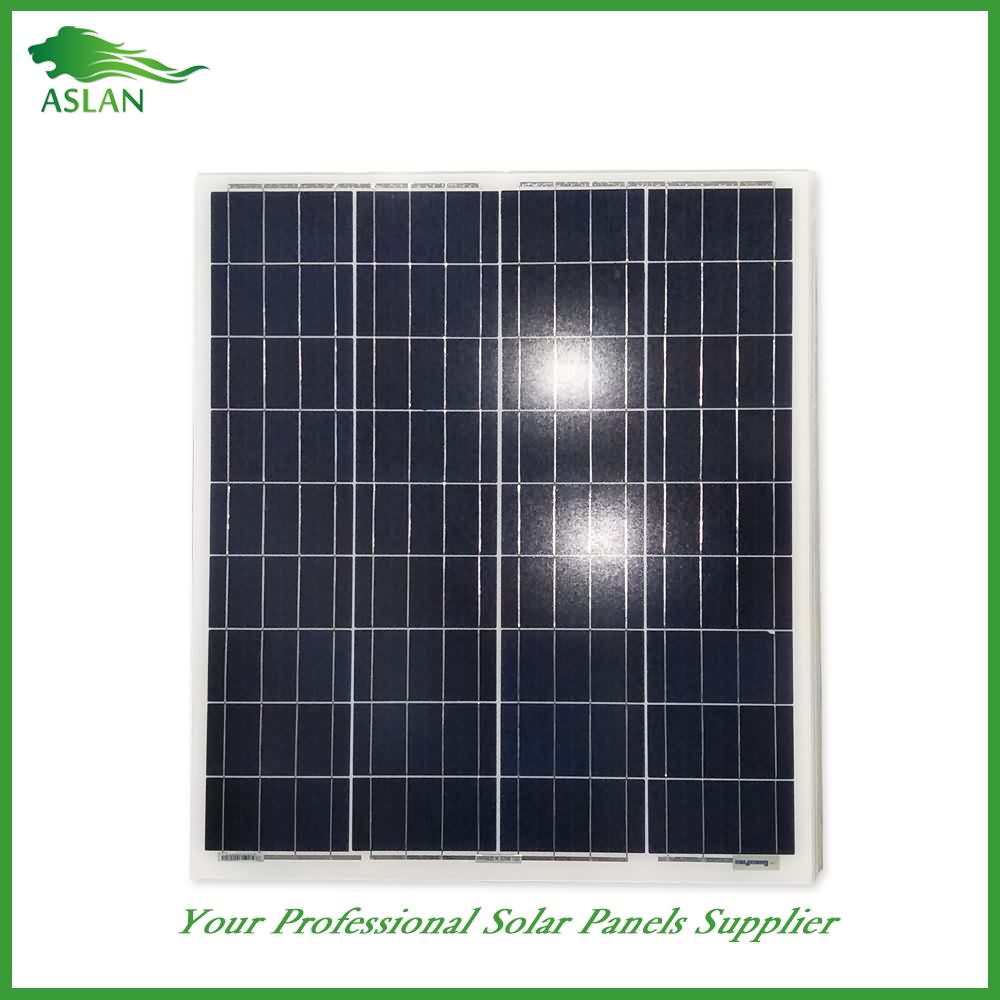Factory Price Poly-crystalline Solar Panel 200W Supply to Surabaya
Short Description:
We are convinced that with joint efforts, the business between us will bring us mutual benefits. We can assure you product quality and competitive price for Factory Price Poly-crystalline Solar Panel 200W Supply to Surabaya, Contact with us today! We are ready for the market service now!
Poly-crystalline Solar Panel 200W
Technical parameter
Maximum Power(W) 200W
Optimum Power Voltage(Vmp) 26.78V
Optimum Operating Current(Imp) 7.47A
Open Circuit Voltage(Voc) 32.66V
Short Circuit Current(Isc) 8.21A
Mechanical Characteristics
Cell Type Polycrystalline 156x156mm (6 inch)
No of Cell 54 (6x9pcs)
Dimensions 1482x990x40mm
Weight 17.6Kg
Front Glass 3.2mm,High Transmission, Low Iron,Tempered Glass
Junction box IP65 Rated
Output Cable TUV 1×4.0mm2/UL12AWG,Length:900mm
Temperature and Coefficients
Operating Temperature(°C): -40°C ~ + 85°C
Maximum System Voltage: 600V(UL)/1000V(IEC) DC
Maximum Rated Current Series: 15A
Temperature Coefficients of Pmax: -0.47%
Temperature Coefficients of Voc: -0.389%
Temperature Coefficients of Isc: 0.057%
Nominal Operationg Cell Temperature (NOCT): 47+/-2°C
Materials of solar panel
1).Solar Cell——Polycrystalline solar cell 156*156mm
2).Front Glass——-3.2mm, high transmission, low iron, tempered glass
3).EVA——-excellent anti-aging EVA
4).TPT——-TPT hot seal made of flame resistance
5).Frame——anodized aluminum profile
6).Junction Box——-IP65 rated, high quality, with diode protection
Superiority: high quality anodized aluminum frame, high efficiency long life, easy installation, strong wind resistance, strong hail resistance.
Features
1. High cell efficiency with quality silicon materials for long term output stability
2. Strictly quality control ensure the stability and reliability, totally 23 QC procedures
3. High transmittance low iron tempered glass with enhanced stiffness and impact resistance
4. Both Poly-crystalline and Mono-crystalline
5. Excellent performance in harsh weather
6. Outstanding electrical performance under high temperature and low irradiance
Quality assurance testing
Thermal cycling test
Thermal shock test
Thermal/Freezing and high humidity cycling test
Electrical isolation test
Hail impact test
Mechanical, wind and twist loading test
Salt mist test
Light and water-exposure test
Moist carbon dioxide/sulphur dioxide
Have you ever wondered how does solar power work? Get a free pdf ebook on solar energy and how to save money with alternative energy: http://www.altprofits.com/ref/ct/ctv/eg/solar_energy.html
Of course, if you want to install a system for your home, on or off the grid, you want to understand something about how you’ll get free energy from the sun and how solar power works.
You’ve probably used a solar powered calculator for doing mathematical problems. You know the kind; as long as the calculator is exposed to light, it operates perfectly. Did you know that there are portable solar energy panels that you could use to operate a laptop computer, a radio or CD player, a cell phone, digital camera or other small appliance when camping, hiking or even when sitting beside your swimming pool?
These small, flexible solar power panels roll up for storage in a small space and simply unroll for placement in the bright sunshine when you want a little power to run a small electric device. These solar panels function pretty much the same as a large roof-top solar collector panel. You can also get bigger portable plug and play solar generator for emergencies, camping, or wherever else you need power.
Sun’s energy is entrusted in the International Space Station as they know that this offers the best energy efficiency. The solar panels are faced toward the sun at all times in order to be able to power the space station efficiently.
These solar collection cells, whether large or small, are called photovoltaic cells. Photo-voltaic, when broken down, is easy to understand. “Photo” means light and “voltaic” means electric; the word means electricity from light. These devices were invented to power satellites and devices in space but now are in use all over the world in households.
The beginning:
In 1839, French experimental physicist Edmund Becquerel. He found that certain materials would produce small amounts of electric current when exposed to light. In 1954 the first silicon solar cell was built by Bell Laboratories. In the 1960s the space industry began to use solar technology to provide power aboard space crafts.
Solar energy panels, also called photovoltaic (PV) panels, are made of material that concentrate the sun’s rays. Nearly 90 % of PV panels are made of polysilicon. When the sun’s rays strike a PV panel, some of the energy can be absorbed by the panel. This can be used to heat water passing through pipes in the solar energy panel. It can be absorbed by semiconductor material and used to generate electricity.
The photoelectric effect:
When PV cells collect electrons from the light being absorbed, these electrons flow in a single direction because of the electric fields they contain. The flow of electrons is controlled by the use of metal contacts at the top and bottom of the solar energy panel so that current can be extracted for use. This can power the small appliance or used to power an entire house.
If the solar energy panel is used to create electricity, the current is stored inside the home in batteries somewhat like the one you’ve seen in your car. Usually there is a bank of several batteries that store the electricity. A control unit makes sure the right amount of voltage and amperage goes into the electric wires when someone turns on a light switch, when the home’s heat or air conditioning comes on, or other demand is placed on the batteries to supply their stored electric power to the house.
Of course, it is a bit more complex if you get into all the engineering details. This is, however, a basic explanation of how solar energy panels can provide enough kilowatt for your energy needs.
Thanks for watching our short video on how solar power works! Please share https://youtu.be/G-qms8NjCMc with your friends on FB Twitter LinkedIn …. and subscribe to my channel.
Get more information on using renewable energy by going to this website: http://www.altprofits.com
P.S. There is another interesting but longer video on the topic: “Solar Energy” you can watch it here https://www.youtube.com/watch?v=4uPVZUTLAvA – I would also recommend to subscribe to the SciShow Channel at https://www.youtube.com/user/scishow/featured
#SolarEnergy
#SolarPower
#SolarPanels
#RenewableEnergy
#sustainability
#green
Check out the range at:
http://www.supercheapauto.com.au/online-store/batteries-and-electrical/solar-power/solar-panels-and-accessories.aspx?id=40801
NZ: http://www.supercheapauto.co.nz/online-store/batteries-and-electrical/solar-power/solar-panels-and-accessories.aspx?id=40801
